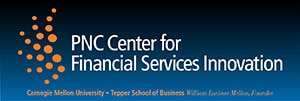
Start-ups, relatively newer non-bank payments technology companies, and larger, more mature financial services and technology companies are amassing up to one-third of new revenue, which is challenging the competitiveness of traditional banks.[1]
Many incumbent banks continue to dismiss the threat of new entrants claiming that (1) the new entrants are not creating new innovations but rather dressing up traditional banking products, (2) significant revenue is not moving to the new entrants, or (3) these firms are not generating profit. However, 19% of financial institutions in the U.S. are new entrants and have captured 3.5% of total banking and payments revenues.[2] And of recently, more than 75% of FinTech firms have identified their primary business objective as collaborating with traditional financial institutions to drive innovation while retaining customer trust.[3]
Investing in innovation is no longer an optional hobby for banks; it is a strategic imperative. If there’s one thing for certain in the competitive financial services arena, tech-savvy providers hold the ticket to the future.
PNC will be a technology company that delivers financial services, according to Bill Demchak, the company’s chairman, president and CEO. It’s a point he makes regularly with PNC shareholders, investors, analysts and the media. “Technology as a back office function is a thing of the past,” Bill said. “We will succeed or fail based on how well you do your jobs. We will win — or lose — volume and market share based on your ability to drive innovation. The future relies on our ability to develop the coolest, easiest channels for customers to access products and services when and how they want them.”[4]
PNC invests $1.8 billion annually in product and technology development enterprise-wide.[5] We are committed to continually improving our people’s performance, processes, and technology platforms to build trust with clients, to enhance relationships and user experiences, and to create innovative products and services that make doing business more user-friendly, efficient, convenient, and cost-effective. PNC seeks to build on internal programs that are designed to drive strategic advantage for ourselves and our clients. At the forefront is a multitude of technology initiatives:
PNC continually improves itself to embrace technology disruptions by investing and collaborating in emergent technology companies, and dedicating appropriate resources to become not only a bank but also a technology provider.
At the end of the day…technology is going to be great for the business in the long term,” Chris Ward, Head of Treasury Management Product, explained. “It’s going to allow PNC to make faster decisions for customers, it’s going to help increase compliance, and it’s also going to create new revenue opportunities and client experiences that PNC just doesn’t have today.
Insights into PNC's Technology Initiatives
 PNC and The Tepper School of Business at Carnegie Mellon University partnered in 2013 to develop The PNC Center for Financial Services Innovation to stimulate research that advances financial services through technological innovations. The center serves a dual role to foster the creation of knowledge through research and to disseminate this knowledge through education.[6]
PNC and The Tepper School of Business at Carnegie Mellon University partnered in 2013 to develop The PNC Center for Financial Services Innovation to stimulate research that advances financial services through technological innovations. The center serves a dual role to foster the creation of knowledge through research and to disseminate this knowledge through education.[6]
 PNC’s iLab opened in 2015 to enhance PNC’s ability to design, test, refine and improve the PNC customer experience. The iLab’s primary function is to provide a space where PNC can develop technology, process and operations, space design, sales and service scripts, and marketing material. [7]
PNC’s iLab opened in 2015 to enhance PNC’s ability to design, test, refine and improve the PNC customer experience. The iLab’s primary function is to provide a space where PNC can develop technology, process and operations, space design, sales and service scripts, and marketing material. [7]

PNC Application Program Interface (“API”) or APIFest is a 24-hour contest where teams of employees build applications to benefit customers and provide an avenue for employees to think beyond the scope of their everyday roles to spark the creation of innovative new products and services.[8]

Launched in February 2017, numo is part innovation lab, part tech incubator. numo sources product ideas from employees at all levels inside of PNC, leading academic thinkers, entrepreneurs, and numo's own venture team. numo is currently piloting its first product with healthcare Relationship Managers and plans to roll out the pilot to other RM verticals early next year. Their second product, a digital banking product for gig economy workers, will launch an employee pilot in 1Q2019. Partnerships include Carnegie Mellon University and University of Chicago where they have launched two Fintech Challenges.
 PNC continues to invest in technology-based solutions to enable faster, more accurate and more efficient payments. PNC is part of a multi-bank, mobile C2C payment network called Zelle in which the consumer can send and receive money from an application with just an e-mail or phone number. PNC also partnered with Ripple in 2018 to utilize the Blockchain technology to expedite international transactions for commercial clients. Want to know more? Be on the lookout for next quarter’s newsletter for a Q&A with PNC’s Innovation Leadership Team.
PNC continues to invest in technology-based solutions to enable faster, more accurate and more efficient payments. PNC is part of a multi-bank, mobile C2C payment network called Zelle in which the consumer can send and receive money from an application with just an e-mail or phone number. PNC also partnered with Ripple in 2018 to utilize the Blockchain technology to expedite international transactions for commercial clients. Want to know more? Be on the lookout for next quarter’s newsletter for a Q&A with PNC’s Innovation Leadership Team.
Contact us to discover how our dedicated team of experts can help support your growth or visit us at pnc.com/fig.




